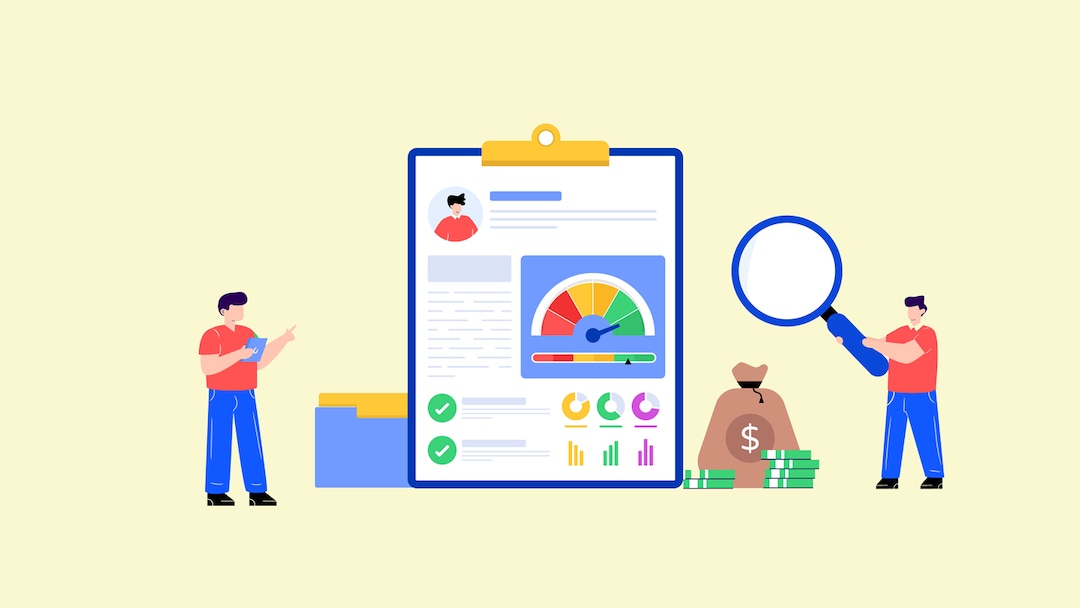755 credit score: A guide to credit scores

Quick insights
- A 755 credit score is considered to be “good” or “very good” by the different scoring models.
- With a 755 credit score, you may qualify for loans and credit cards that come with more favorable terms and interest rates than someone with a lower score.
- You may be able to improve your 755 credit score with some helpful strategies and reach a higher credit score range.
Credit scores can be an essential part of your financial outlook. Your credit score distills your creditworthiness into three digits and assist lenders with determining your interest rates, credit limits and more. Below we discuss what a 755 credit score could mean and ways to improve it.
Understanding a 755 credit score
A helpful way to understand what a 755 credit score means is by seeing where it lands in the credit score ranges. The VantageScore® and FICO® score have five credit score ranges. These scoring models are widely used and are broken down into the ranges below.
As of May 2024, VantageScore® ranges are:
- Excellent: 781 to 850
- Good: 661 to 780
- Fair: 601 to 660
- Poor: 500 to 600
- Very Poor: 300 to 499
As of May 2024, FICO® score ranges are:
- Exceptional: 800+
- Very Good: 740 to 799
- Good: 670 to 739
- Fair: 580 to 669
- Poor: 579 and below
Looking at the credit score ranges provided above, you may notice that 755 is considered to be a good VantageScore and a very good FICO score. Regardless of which of the two scoring models is used to generate your score, this number falls into the higher tier of credit scores.
Benefits of a high credit score
Both good and very good credit scores typically come with several benefits, including but not limited to:
- Access to better annual percentage rates (APRs) and loan terms
- Higher chances of approval for both loans and credit cards
- Potentially lower insurance premiums
- Ability to negotiate better terms on financial products
Buying a home with a 755 credit score
Thinking about applying for a mortgage but don’t know how a 755 credit score could impact that process? Buying a home with a 755 credit score may be possible; however, it could be more challenging than if you had an excellent credit score. Some lenders may require a larger down payment, charge higher interest rates or have stricter loan terms.
As part of the homebuying process, carefully review and compare different lenders and loan options to find the best fit for your specific circumstances. Though important, credit scores are just one of several factors lenders use when approving home loans.
Getting a loan with a 755 credit score
There are different types of loans you could apply for, such as personal loans, auto loans and more with a 755 credit score. These may come with more favorable APRs than if you had a lower credit score. However, credit scores are just one factor that lenders consider. They may also take into account your debt-to-income ratio and employment status, among others. Adding a co-signer is another consideration, as this could lower your potential risk.
Increasing a 755 credit score
A 755 credit score is already considered to be good or very good by these two scoring models, which typically implies you’ve been taking good care of your credit. However, as good as your score may be, achieving a higher score should be on your financial radar. With a higher credit score, you could potentially access premium credit cards or loans with more favorable terms. To help you improve your credit score, consider the following strategies:
- Reduce credit card balances to lower your credit utilization (the amount of credit you use against your total available credit). Lowering this ratio to about 30% or less is a great start.
- Build a positive credit history with responsible credit behavior, such as making on-time payments. You may also want to avoid applying for too many lines of credit at once, since lenders will run a hard credit check, which will temporarily hurt your credit score.
- Monitor credit reports for errors and disputing inaccuracies.
- Create a realistic budget so that you can lower your credit utilization as well as build up savings in case of an emergency.
- Avoid closing old credit card accounts, as they can help maintain your credit age/mix and utilization.
In conclusion
Whether you’re just starting out on your financial journey or have been checking your credit score for years, understanding what your credit score means is an important part of improving your financial wellness. With patience, diligence and determination, as well as healthy financial habits, you may find ways to further improve your credit score and potentially unlock more financial opportunities.



